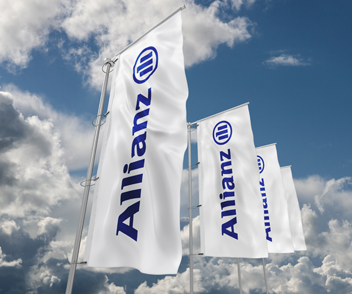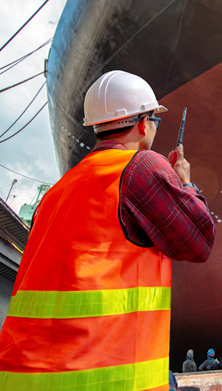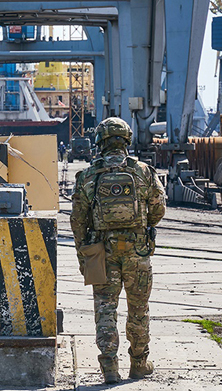Rising geopolitical tensions threaten
global shipping
global shipping
Geopolitical risks have been rising around the globe. Civil unrest, including violent protests, erupted in Hong Kong, Chile and India, to name just a few (47 countries witnessed a surge in civil unrest in 2019, according to a Verisk study) [1]. At the same time, trade disputes weighed heavily on global trade, contributing to a slowdown in the economy in 2019, even prior to the coronavirus outbreak.
Political rivalries are increasingly being played out on the seas, affecting some of the world’s busiest transit routes. Tensions between the US and Iran, for example, have led to a growing number of attacks against vessels in the Gulf of Oman and off the coast of Yemen in the Strait of Hormuz. Six oil tankers were attacked in the region in May 2019 alone, with further attacks in June against the Front Altair and the Kokuka Courageous, which sustained significant damage in the Gulf of Oman. In July 2019, the UK-flagged Stena Impero tanker was detained by Iranian forces for two months before eventually being released.
“Marine war insurance premiums have risen in the Middle East where exposures have increased significantly with rising political tensions in the region,” says Volker Dierks, Head of Marine Underwriting, Central and Eastern Europe at AGCS. “The industry has been hit with a number of claims in the Gulf of Oman and Straits of Hormuz, with damage to vessels from rocket attacks, mines and torpedoes.”
In April 2020, the Saudi government revealed Houthi rebels in Yemen had used a remotecontrolled boat packed with explosives in a failed attack on an oil tanker 90 miles off Yemen’s southern coast. The Iranian-backed Houthis have used a number of methods to attack tanker traffic and naval vessels in the Red Sea and Arabian Sea, including sea mines, antiship missiles and explosive boats.
“With no clear long-term solution in sight, and as we have seen repeatedly in the region, risk to vessels in the Middle East can increase dramatically at short notice,” says Captain Rahul Khanna, Global Head of Marine Risk Consulting at AGCS.
The escalation of tension between Iran and the US demonstrates how a political situation can change quickly and threaten international trade, explains Captain Andrew Kinsey, Senior Marine Risk Consultant at AGCS. "There is already only a small window of error when navigating a choke-point like the Strait of Hormuz, so when you throw in the additional security challenge, it adds additional pressure on crews and a financial burden to shippers. In addition to physical damage from attacks targeting vessels, there is the knock on effect of a heightened risk of collisions and groundings. When tensions run high there is an even narrower margin of error,” says Kinsey. The South China Sea, where China and the US are vying for influence in Asia Pacific, is fast becoming the next hotspot, as territorial claims are pursued over the strategically important Paracel and Spratly Islands by a number of South Asian countries. Against the backdrop of a US/China trade dispute, the US navy continues to patrol international waters in the South China Sea to maintain free movement of navigation.
“The South China Sea is an area where geopolitical rivalries play out at a local level. This is not an issue that is likely to go away – there is an ongoing shift in geopolitical power going on in the background,” says Kinsey. Shipping companies should prepare for an increase in disruption to supply chains and their operations, Kinsey adds.
“Shipping is a global commodity and can be used as a pawn in disputes due to its impact on the economy. If you disrupt supply chains there can be a direct impact on global markets. Shipping will increasingly be drawn into geopolitical disputes,” says Kinsey. “Heightened political risk globally raises the threshold for unrest, with implications for shipping, such as the ability to secure crews and access ports safely. If there is unrest onshore it could spill out into territorial waters, as was seen with Somalian piracy.”















